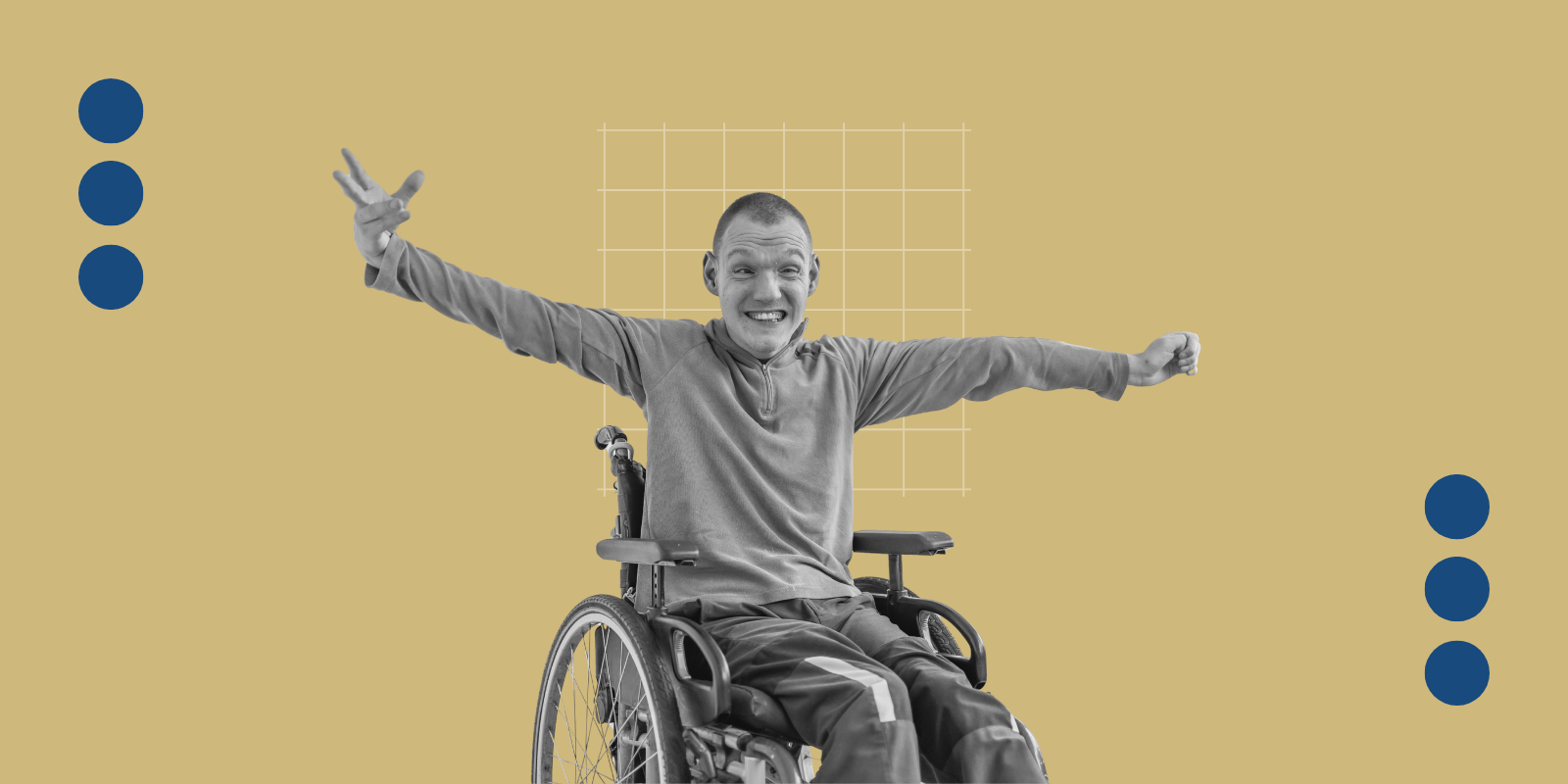For so many of us, life slowed down with COVID-19. The limitation of not gathering in person extracted most of our social commitments and daily rhythms. However, for Dr. Megan Morris, things have only sped up in the last two years.
Dr. Morris, ACCORDS investigator and former Qualitative and Mixed Methods Core lead, runs the Disability Equity Collaborative (DEC). The DEC hosts the Learning CollaborativE to Advance Disability Equitable CaRe (LEADERs) group which supports individuals, healthcare organizations, policymakers, advocates, researchers, and professional organizations working to address health disparities experienced by patients with all types of disabilities. Due to enhanced safety precautions and frequent policy changes, COVID has significantly impacted access to equitable care for many patients with disabilities. In response to these challenges, the LEADERs group increased its bi-monthly meetings to bi-weekly since the pandemic began.
While Dr. Morris created the group in May 2018, its origins lay within Section 1557 of the Patient Protection and Affordable Care Act. The act states that health care organizations (HCO) are mandated to (1) provide effective communication, (2) establish accessibility standards for buildings and facilities, and health programs provided through electronic and information technology systems, and (3) make “reasonable modifications” to policies, procedures, and practices to provide patients with disabilities access to the organizations’ health programs and activities.
Section 1557 also mandates HCOs with 15 or more employees are to designate an employee to lead efforts to enact organizational changes to comply with the law. As a result, many HCOs either designated existing personnel or hired new employees to serve as Disability Accessibility Coordinators (DACs). Unfortunately, the laws are vague and do not provide specifics on how to implement accessible care.
There is no blueprint for how to do this job
“Even though there's a legal mandate, there isn't literature, guidance, or evidence on how to provide effective communication or accommodations for patients with disabilities,” says Dr. Morris. “There is no blueprint for how to do this job.”
Guidance and problem-solving
In 2018, Dr. Morris began to receive calls from DACs. These individuals had discovered Dr. Morris based on her previous disability record research and were desperate for guidance on how to do their jobs. Dr. Morris formed LEADERs as the first and only national collaborative of healthcare organizations that are actively working to provide equitable care to patients with disabilities, including hearing and communication disabilities.
The virtual meetings are an opportunity for members to share ideas and get advice on how to provide disability accommodations in the inpatient and outpatient settings. The meetings include both open discussion opportunities as well as targeted conversations about specific topics such as disability competency training. The group, which has grown solely through word of mouth, includes DACs who represent over 30 healthcare systems and roughly 250 hospitals across the country.
COVID challenges
DACs have faced enormous hurdles in providing equitable care for patients with disabilities because of COVID-19. For example, one member of the LEADERs group had a patient at their hospital who was deaf and in labor. This patient used lipreading to communicate. The masks worn by hospital administration, nurses and doctors completely cut off communication with this patient. Since this was in the early stages of the pandemic, clear masks and face shields were not readily available or approved, so the LEADERs group worked together to help solve this challenge.
There are countless other instances where the restrictions of the pandemic have added obstacles to the already difficult path of providing equitable care for patients with disabilities. COVID has increased the prevalence of telehealth, and while that has improved the accessibility of care for many, patients with hearing disabilities face significant challenges there.
As new solutions, or more often mandates from patient lawsuits come out, healthcare organizations and DACs need to create exception policies to their COVID procedures to provide that “effective communication.” LEADERs group members develop and share sample language for exception policies.
For specific topics related to DAC work challenges, Dr. Morris invites outside experts to speak to the group. Example topics include providing hearing accommodations such as Pocket Talkers and other communication aids, communication for non-verbal patients in the ICU, disability cultural competency, and ASL interpretation. Dr. Morris was awarded the American Speech-Language-Hearing Foundation State Clinical Achievement Award, as well as an Engagement Award from the Patient-Centered Outcomes Research Institute (PCORI) for her work through DEC.
Influencing policy
“We have connected with federal policymakers including individuals from HRSA, the agency that oversees all federally qualified health centers and award grants to rural clinics and providers,” says Dr. Morris. “The director of civil rights and compliance comes regularly to our group every quarter to answer questions as well as elicit feedback on initiatives they're working on.” The DEC LEADERs group shares the real challenges they face in practice—these examples are then fed directly to policymakers. Similarly, the National Council on Disability, composed of appointed members of the Senate, regularly elicits feedback from the group on disability initiatives and proposed policy statements.
The DEC LEADERs group shares the real challenges
they face in practice—these examples are then fed
directly to policymakers
Dr. Morris’ PCORI Engagement Award ended in June of this year, and she is currently in the process of applying for renewals to continue the work through DEC. Despite this, the activities are sustained through continued DEC LEADERs meetings and national Workgroup meetings, including the Research Workgroup and Standards and Guidelines Workgroup. As an ever-long solution, the group’s list of resources for healthcare organizations is extensive and can be utilized by all individuals and organizations, even if they do not have a dedicated DAC.
“To make a meaningful impact on the health and healthcare outcomes of people with disabilities, health systems, researchers, policymakers, patients and other key stakeholders need to partner, identify, and implement evidence-based practices and policies,” says Dr. Morris. “We at DEC plan to continue to foster these collaborations and advance innovations in healthcare practice and policy for persons with disabilities.”
.png?width=792&name=boiler%20plate%20(1).png)



